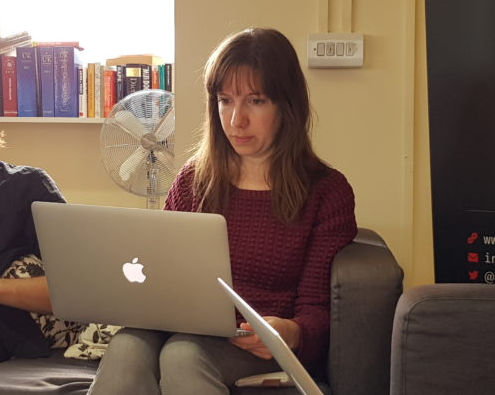
Civil judges across England and Wales have been reminded of the importance of open justice after a Bureau of Investigative Journalism project encountered “closed doors” in courts across the country.
The Bureau co-ordinated more than 20 journalists who monitored 683 possession hearings on 110 occasions at 30 courts over the summer after realising there is a lack of data on who is involved and what happens at these proceedings.
However it has reported that on six occasions judges refused to let journalists into their courtrooms because they wrongly claimed possession hearings are private. A seventh time a judge said entry would only be allowed with a signed and stamped letter from the top regional judge.
On two further occasions journalists were initially barred from entering the court building, once on the orders of a judge and once because of court staff.
Even when journalists were able to enter the courtroom they came up against lawyers for mortgage lenders objecting to their presence on just under a fifth of occasions.
After being presented with this evidence by the Bureau, the Master of the Rolls Sir Geoffrey Vos (pictured) wrote to “all civil judges emphasising that the public and press must be able freely to access all public court hearings,” the Judicial Office confirmed.
Maeve McClenaghan, the journalist who led the possession courts project, told MPs on the Justice Committee on Tuesday: “We’ve actually been gratified that the master of the rolls has since written to all the civil judges reminding that journalists and indeed the public should be allowed in by default to possession hearings, so hopefully there has been a positive outcome from that.
“But it does take some tenacity of spirit on the part of the journalists to keep pushing at those doors even when they’re closed.”

Maeve McClenaghan Picture: TBIJ
McClenaghan said reporters were faced with “blanket bans” by some judges who seemingly misinterpreted the Civil Procedure Rules.
The rules, updated in 2019, contain a general rule that a hearing is held in public unless a court decides it should be held in private – one of the reasons for which is a case involves confidential information including relating to personal financial matters.
A formal reporting restriction was only handed down in one case. On several others, journalists were ejected from the courtroom without a formal reason being given, or told not to report names or financial details, without an official restriction being put in place.
“Interestingly, even in courts where one day we would go and have no issue and sit in the whole day’s worth of hearings, the next day you’d turn up and it would be a different judge in the same courtroom telling us that no, journalists are never allowed into these hearings, they are closed to the public,” McClenaghan said.
“So there was a fundamental confusion really, misunderstanding, as to whether we were allowed to be in those hearings.”
McClenaghan suggested that, “generously”, judges did not know about the 2019 update to the rules.
“That is what it seemed to be and when we would appeal to more senior judges, designated district judges, they would often say ‘we’re completely for open justice, of course you’re allowed in’,” she said.
“But that message just has not filtered down and perhaps never been tested because a lot of judges and lawyers remarked that they had never seen a journalist in their courts before.”
Most of the objections from lawyers, 12 in all, came from the Bank of Scotland. In one case the lawyer withdraw all their cases with the aim of applying to have them all held in private.
After the Bureau contacted Bank of Scotland owner Lloyds Banking Group about these issues the organisation told its lawyers a month into the project not to object to journalists being present in court – but the Bureau felt the way this was worded was not enough.
Another difficulty came because of remote hearing procedures introduced during the Covid-19 pandemic. McClenaghan told MPs that court lists are only published in the late afternoon of the day before – similar to many crown courts – and that this does not leave much time to ask for remote hearing access which is required to be done with a specific case number.
“It didn’t really facilitate journalists who just wanted to go and watch everything that happened that day,” she said.
Another spotlight on transparency came last month when the family courts president called for a “major shift in culture and process” and revealed plans for journalists to be able to report much more detail about what they witness in hearings in England and Wales.
Email pged@pressgazette.co.uk to point out mistakes, provide story tips or send in a letter for publication on our "Letters Page" blog
